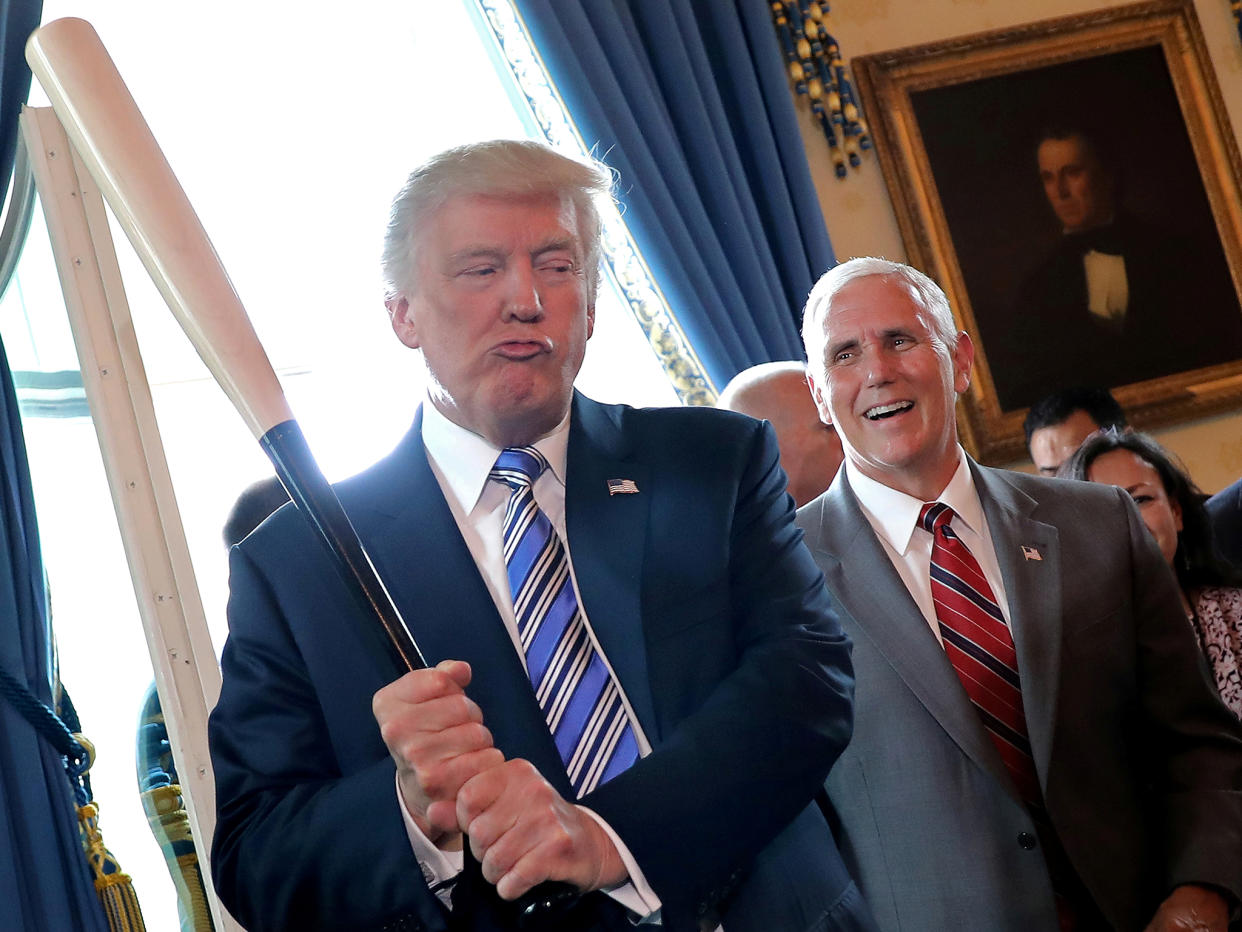As Donald Trump's emissary to Israel, Mike Pence is looking to a future in which he calls the White House home

There are few worlds in which the presence of Mike Pence conducting high-level diplomacy in the Middle East would be reassuring. The one in which it might be is the one in which its greatest power is led by Donald Trump. Unfortunately, that is the same world in which Trump sets America’s diplomatic cards on the table – even Henry Kissinger would struggle to play a calming hand in such circumstances.
With the US President having announced in December that America was to move its embassy from Tel Aviv to Jerusalem, Pence’s visit to Israel this week always looked like a bit of a hospital pass. Sure enough, the Vice President’s speech to the Israeli parliament was interrupted by Arab Knesset members holding up placards declaring Jerusalem to be the capital of Palestine – placards that were quickly snatched away by security guards. The legislators were then removed from the chamber.
Not to be put off, Pence declared himself humbled at speaking before such a vibrant democracy and confirmed that America’s embassy move would take place before the end of 2019. Whether the ejected Knesset members were able to hear his words from whichever corridor they had found themselves in is unclear.
Trump’s style of governing is nothing if not direct. His decision to relocate America’s diplomatic mission to Jerusalem was, in his way of thinking, no more than confirming in advance one element of a future deal between the Palestinians and the Israelis, with the rest of the package to be sorted out in due course. The art of the pre-deal deal or something.
Recent developments in North Korea may have emboldened that approach, with Trump able to imply that his hardline response to Kim Jong-un’s nuclear threats pushed Pyongyang to engage in talks with the South. In domestic politics too, Trump’s team is merrily telling anyone who will listen that the President will not discuss the Dreamer programme until the Democrats agree to “reopen the government”.
In all things, Trump must be the man to set the agenda.
Yet even putting aside the question of whether the Trump method will prove lastingly successful in turning Kim Jong-un into a pussycat – or will encourage Democrats to dance to the President’s tune – it doesn’t take an extreme sceptic to wonder if a tough approach to business necessarily translates well to the tinder box of Middle East diplomacy.
Certainly there seems little doubt that a great many Palestinians no longer have faith in the idea that America can be an honest broker in the region. The fact that Pence is not meeting with the Palestinian Authority during his visit is indicative of the breakdown in relations. Pictures of the VP were set alight by Arab protesters in Bethlehem and reaffirmations of the US’s commitment to a two-state solution (if both sides agree) are falling on deaf ears.
America’s decision last week to cut its funding for UNRWA, the UN’s agency for Palestinian refugees, was further proof – for Palestinians – that Trump’s administration has very definitely picked a side.
Yet it would perhaps be wrong to portray Mike Pence merely as Trump’s fall guy; as the poor chap who has to juggle the flaming balls that the President throws in the air in lieu of standard diplomacy. After all, Pence has long made clear – not least during his and his boss’s White House campaign – where he stands on the Israeli-Palestinian situation.
“Israel’s fight is our fight; Israel’s cause is our cause,” he intoned in one campaign ad. After Trump’s victory, it was Pence who he dispatched to reassure American Jewish groups of the administration’s commitment to the Israeli alliance. And his personal attitude towards support for recognition of Jerusalem as Israel’s capital is rooted in – and reflective of – the views of the evangelical Christianity that is such an important element of the Trump base.
There is something else too. Sorting out the Middle East was supposed to be a pet project for Jared Kushner. But his embroilment in the swirl of allegations about links between the Russian state and his father-in-law’s election campaign have concentrated his attentions elsewhere.
With Trump himself battling domestic dysfunctionality, the result is that all of a sudden Mike Pence is centre-stage and has a chance to demonstrate his qualities as a statesman – handily playing to the interests of groups in America that might help fund a presidential run in 2020.
He has denied such a prospect in the past. But with Trump’s approval ratings at a record low for this point in a Presidency, might he be reconsidering?
Penny for your thoughts, Mike.

 Yahoo News
Yahoo News 
